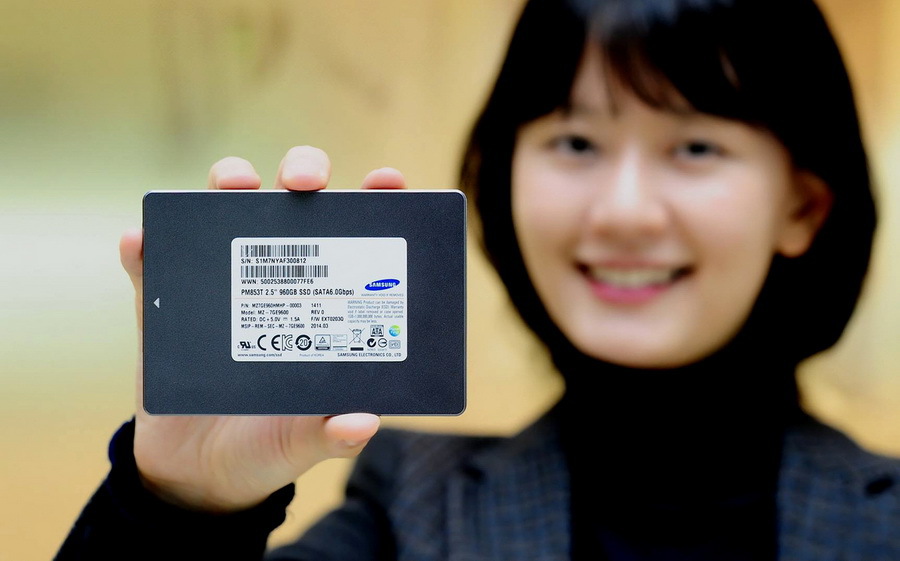Samsung launches SSD technology on 3 bits per cell for data centers
Good Friday, Habr!
The other day, Samsung Electronics announced the start of mass production of high-performance SSD for servers and data centers. New data storage technology up to 3 bits per cell (3-bit MLC) is designed to make solid-state drives based on NAND flash memory the best choice for storing and processing large amounts of data. The new line of SSD Samsung PM853T is presented by models with a capacity of 240 GB, 480 GB and 960 GB.

The 3-bit MLC technology allows you to increase production efficiency by 30% compared to memory, which stores up to 2 bits of information per cell. Drives are made on the basis of NAND flash memory chips, which is produced according to the 10-nm class process technology. They provide sequential read speeds of up to 530 MB / s and sequential writes of up to 420 MB / s. Random read and write speeds reach 90,000 and 14,000 IOPS, respectively.
')
Since the release of the first SSD Samsung 840 EVO with storage technology up to 3 bits per cell in 2012, the company has become the leader in the production of drives for PCs and ultra-thin laptops. Today, Samsung continues to expand its line of SATA, SAS, PCIe and NVMe devices to speed up the transition process from hard drives to SSD. Samsung PM853T devices with SATA 6 Gb / s interface will allow data centers to increase their efficiency and reduce the cost of building high-performance storage systems. New solid-state drives will begin to be used in data storage systems of large data centers already this quarter.
According to IHS iSuppli, the global SSD market will increase from $ 9.4 billion in 2013 to $ 12.4 billion in 2014, and by 2017 it will reach $ 20 billion.
The other day, Samsung Electronics announced the start of mass production of high-performance SSD for servers and data centers. New data storage technology up to 3 bits per cell (3-bit MLC) is designed to make solid-state drives based on NAND flash memory the best choice for storing and processing large amounts of data. The new line of SSD Samsung PM853T is presented by models with a capacity of 240 GB, 480 GB and 960 GB.

The 3-bit MLC technology allows you to increase production efficiency by 30% compared to memory, which stores up to 2 bits of information per cell. Drives are made on the basis of NAND flash memory chips, which is produced according to the 10-nm class process technology. They provide sequential read speeds of up to 530 MB / s and sequential writes of up to 420 MB / s. Random read and write speeds reach 90,000 and 14,000 IOPS, respectively.
')
Since the release of the first SSD Samsung 840 EVO with storage technology up to 3 bits per cell in 2012, the company has become the leader in the production of drives for PCs and ultra-thin laptops. Today, Samsung continues to expand its line of SATA, SAS, PCIe and NVMe devices to speed up the transition process from hard drives to SSD. Samsung PM853T devices with SATA 6 Gb / s interface will allow data centers to increase their efficiency and reduce the cost of building high-performance storage systems. New solid-state drives will begin to be used in data storage systems of large data centers already this quarter.
According to IHS iSuppli, the global SSD market will increase from $ 9.4 billion in 2013 to $ 12.4 billion in 2014, and by 2017 it will reach $ 20 billion.
Source: https://habr.com/ru/post/221511/
All Articles